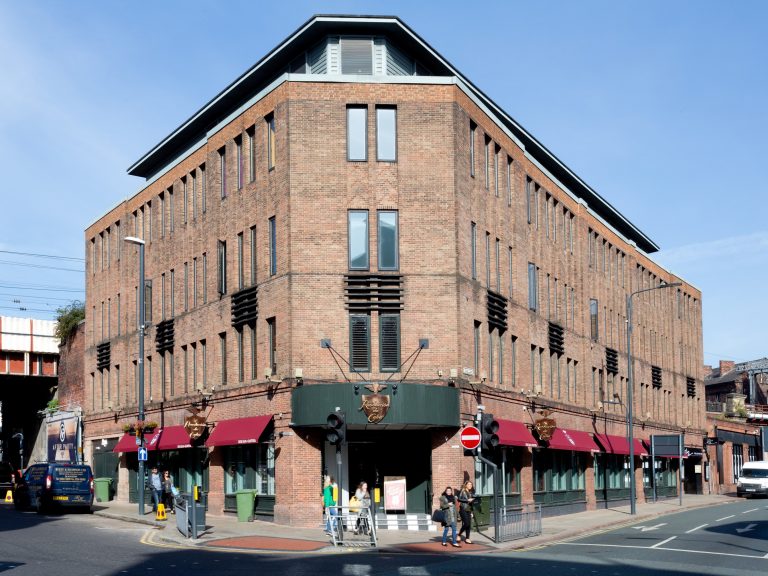Leeds’ Elbow Rooms sold for £4m
Plans unveiled to bring landmark Hull building back to life
South Yorkshire land parcel sold for £29m
Pandemic-born businesses could add £20.4bn to UK economy
- Only 13% cited regulation as a challenge when starting their business.
- Access to finance was a key concern for many burgeoning business leaders, with 55% highlighting this post 2020, compared with 42% pre-COVID.
- 4 in 5 firms report no plans to wind down their business.
- Pandemic-born businesses are more likely to say it is important to adopt the newest technologies compared to their pre-pandemic counterparts (56% versus 71%).
- Pandemic-born businesses are 20% more likely to use both sustainable materials and suppliers, compared with firms established prior 2020.
Hull Liberals pull plug on city’s cruise terminal plans
Boris Johnson expected to resign today
Government awards contract for difference on world’s largest wind farm zone
With a capacity of 2,852 MW, Hornsea 3 will produce enough low-cost, clean, renewable electricity to power 3.2 million UK homes, making a significant contribution to the UK Government’s ambition of having 50 GW offshore wind in operation by 2030 as part of the British Energy Security Strategy.
The wind farm will play a key role in the ongoing development of a larger and sustainably competitive UK supply chain to support the next phase of the UK’s offshore wind success story. Ørsted has already announced a multi-million pound agreement for Hornsea 3 to be the first and lead customer at SeAH Wind’s monopile factory in Teesside, underpinning SeAH’s investment decision to establish a new, globally competitive monopile factory in the UK. Hornsea 3 will contribute significantly to Ørsted’s ambition of globally installing 30 GW offshore wind by 2030. The company currently has about 7.5 GW offshore wind in operation, a further 3.5 GW under construction, and another almost 11 GW of awarded capacity under development, a figure which includes Hornsea 3. Martin Neubert, Deputy Group CEO and Chief Commercial Officer at Ørsted, says: “Offshore wind once again proves itself as a homegrown source of clean energy at large scale that will help the UK achieve its climate targets and increase energy independence while creating local jobs and industrial development. “We remain fully committed to financial discipline. The strike price is inflation-indexed and the contract comes with a level of merchant flexibility. We have already secured capacity with key suppliers for around two thirds of Hornsea 3’s CAPEX. Also, we can unlock significant synergies by taking a global portfolio view in procurement and by utilizing Hornsea 3’s size and location adjacent to our existing UK East coast wind farms with close to 4 GW in operation.” Hornsea 3 will be built 160 km from the Yorkshire coast, and the company expects to commission it in 2027. When Hornsea 3 comes online, Ørsted’s Hornsea zone – comprising Hornsea 1, 2 and 3 – will have a total capacity of in excess of 5 GW, making it the world’s largest offshore wind zone covering the power consumption of approx. 5 million UK homes. Duncan Clark, Head of Region UK at Ørsted, says: “This is another landmark for offshore wind in the UK. Not only will Hornsea 3 provide low cost, clean energy for millions of homes in the UK, it will also deliver thousands of high quality jobs and billions of pounds of investment in the UK’s offshore wind supply chain. “Successive governments deserve credit for providing the regulatory and policy certainty for continued investment in offshore wind – Ørsted alone expects to further invest around 14 billion pounds in the UK to the end of this decade. This has allowed the cost of offshore wind to fall rapidly and to become the thriving industry it is today, with private companies expected to invest 155 billion pounds and almost 100,000 people to be employed in the sector by 2030. “Now more than ever there is a need for the further development of renewable energy, not only to address the increasing threats from climate change, but also to increase the stability and resilience of energy supply. We look forward to working with government and industry colleagues to accelerate the deployment of offshore wind.” Hornsea 3 will support up to 5,000 jobs during its construction phase with up to a further 1,200 permanent jobs both directly and in the supply chain for the long operational phase. Hornsea 3 will be operated from Ørsted’s operations and maintenance hub in Grimsby. The Hornsea Zone will also include Ørsted’s Hornsea 4 project, which could have a capacity of approx. 2.6 GW. Hornsea 4 is currently going through the planning process with a decision expected in early 2023. About the contract Ørsted will build Hornsea 3 including transmission assets (offshore and onshore substations and export cables). When the wind farm has been fully commissioned, Ørsted will, in accordance with UK regulation, divest the transmission assets to a new owner. Ørsted expects to take final investment decision on Hornsea 3 within 18 months and potentially as soon as by end of 2022. The two-way contract for difference (CfD) for Hornsea 3 runs for up to 15 years starting after commissioning of the wind farm, which is planned for 2027. The strike price is inflation-indexed up to and throughout the CfD period. The nominal starting price per MWh will be determined based on the strike price plus accumulated inflation from 2012 until the CfD starts. After the CfD ends, Hornsea 3 will receive the market price for electricity or enter new power purchase agreements.











